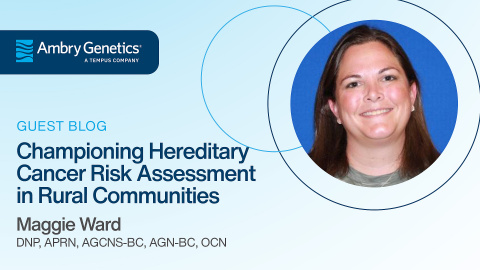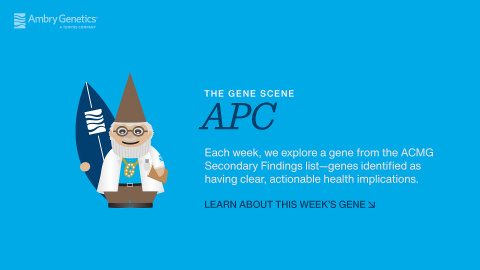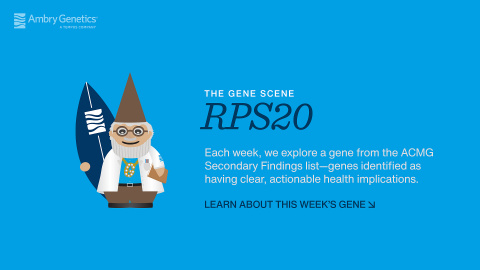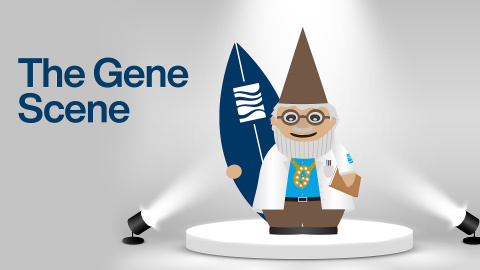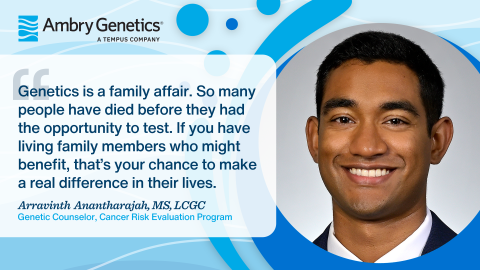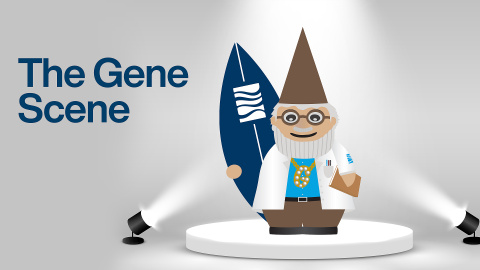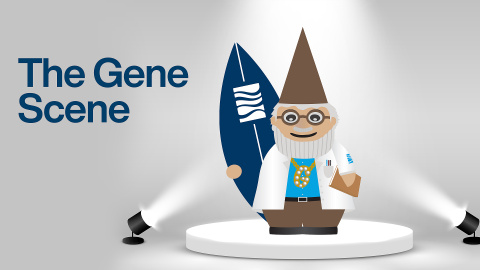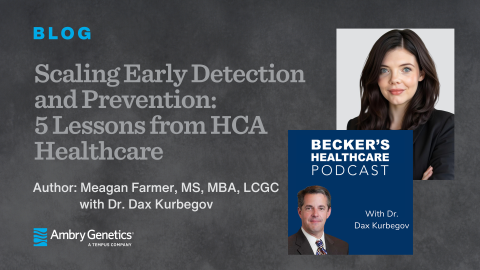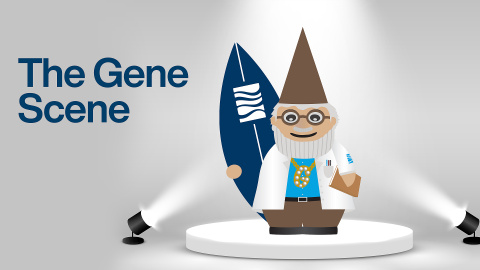- By Maggie Ward, DNP, APRN, AGCNS-BC, AGN-BC, OCN
- Posted September 10, 2025
Championing Hereditary Cancer Risk Assessment in Rural Communities
As an Advanced Practice Registered Nurse (APRN) in Wichita, KS, I’ve spent the last 20 years dedicated to oncology care. I lost my sister-in-law to breast cancer at a young age—she was only 29 years old when she was diagnosed and passed away at the age of 36. I became particularly interested in inherited cancers because of my niece. I wanted…
- By Amanda Jacquart, MS, LCGC
- Posted September 9, 2025
The Gene Scene: APC
Welcome to the Gene Scene! Each week, we will explore a gene from the ACMG Secondary Findings list—genes identified by the American College of Medical Genetics and Genomics as having clear, actionable health implications. These genes are included because they’re linked to serious but preventable or manageable conditions when identified…
- By Catherine Mayo, MS, CGC
- Posted September 2, 2025
The Gene Scene: RPS20
Welcome to the Gene Scene! Each week, we will explore a gene from the ACMG Secondary Findings list—genes identified by the American College of Medical Genetics and Genomics as having clear, actionable health implications. These genes are included because they’re linked to serious but preventable or manageable conditions when identified…
- By Emily Maxwell, MS, CGC
- Posted August 26, 2025
The Gene Scene: ENG
Welcome to the Gene Scene! Each week, we will explore a gene from the ACMG Secondary Findings list—genes identified by the American College of Medical Genetics and Genomics as having clear, actionable health implications. These genes are included because they’re linked to serious but preventable or manageable conditions when identified…
- By Lauren Csukardi
- Posted August 26, 2025
From Research to Reclass: 4,200+ Patients Impacted...and Counting!
In line with our commitment to lead through expert science, we’re proactively reclassifying BRCA2 variants—bringing clarity to patients facing uncertainty and empowering informed health decisions. From Research... Ambry proudly collaborated on the groundbreaking Nature study, Functional Evaluation and Clinical Classification of…
- By Candela Delucchi
- Posted August 26, 2025
Making Waves: Honoring a Mother’s Final Wish Through Creative Care
Meet Arravinth (Avi) Anantharajah, MS, LCGC, a genetic counselor with the Cancer Risk Evaluation Program at the University of Pennsylvania’s Basser Center for BRCA. In our Making Waves series, we’ve spotlighted the inspiring work of healthcare providers across our industry. Learn the remarkable story of one family’s determination to complete…
- By Katherine Crawford, MS, CGC
- Posted August 19, 2025
The Gene Scene: SCN5A
Welcome to the Gene Scene! Each week, we will explore a gene from the ACMG Secondary Findings list—genes identified by the American College of Medical Genetics and Genomics as having clear, actionable health implications. These genes are included because they’re linked to serious but preventable or manageable conditions when identified…
- By Rebecca Carr, MS, CGC
- Posted August 12, 2025
The Gene Scene: PMS2
Welcome to the Gene Scene! Each week, we will explore a gene from the ACMG Secondary Findings list—genes identified by the American College of Medical Genetics and Genomics as having clear, actionable health implications. These genes are included because they’re linked to serious but preventable or manageable conditions when identified…
- By Meagan Farmer
- Posted August 7, 2025
Scaling Early Detection and Prevention: 5 Lessons from HCA Healthcare
Only a fraction of high-risk individuals ever learns about their inherited cancer risk. But it doesn’t have to be that way. In a recent Becker’s Healthcare podcast, Dr. Dax Kurbegov, Senior Vice President at HCA Healthcare’s Sarah Cannon Cancer Network, shared how his team is closing that gap by building a scalable model for risk assessment…
- By Bradley Power, MS, CGC
- Posted August 5, 2025
The Gene Scene: TGFBR1
Welcome to the Gene Scene! Each week, we will explore a gene from the ACMG Secondary Findings list—genes identified by the American College of Medical Genetics and Genomics as having clear, actionable health implications. These genes are included because they’re linked to serious but preventable or manageable conditions when identified…
